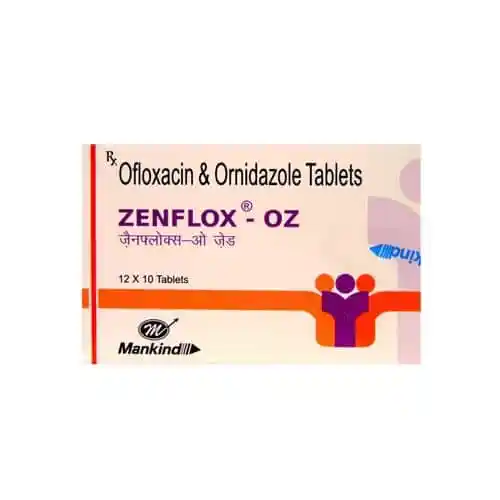Description
DALACIN C 150 MG (Clindamycin)
Welcome to our comprehensive guide on Dalacin C 150 mg, a medication containing Clindamycin, an antibiotic used to treat various bacterial infections. In this article, we will explore the details of Dalacin C 150 mg, including its uses, dosage, potential side effects, precautions, and other essential information.
What is Dalacin C 150 mg (Clindamycin)?
Dalacin C 150 mg is a form of Clindamycin, an antibiotic known for its effectiveness against a wide range of bacteria, including anaerobic and gram-positive bacteria. It works by inhibiting bacterial protein synthesis, thus preventing the growth and spread of bacteria in the body.
Uses of Dalacin C 150 mg (Clindamycin)
Dalacin C 150 mg is prescribed for various bacterial infections in adults and sometimes in pediatric patients. Some common uses include:
1. Skin and Soft Tissue Infections
The medication is effective in treating skin and soft tissue infections, such as cellulitis and abscesses.
2. Dental Infections
Dalacin C 150 mg may be prescribed for dental infections, including dental abscesses and periodontitis.
3. Respiratory Tract Infections
The medication is used to treat respiratory tract infections, such as pneumonia and bronchitis.
4. Bacterial Vaginosis
In certain cases, Clindamycin is prescribed for the treatment of bacterial vaginosis in women.
Dalacin c 150mg how to use?
Dalacin C 150mg (Clindamycin) should be used according to your doctor's instructions. Typically, take the capsule with a full glass of water, with or without food. Maintain consistent intervals between doses, usually every 6 hours. Complete the full prescribed course, even if symptoms improve. Avoid lying down for about 30 minutes after taking it to prevent throat irritation. Do not crush or chew the capsule. If you miss a dose, take it as soon as you remember. However, if it's close to the next dose, skip it and continue with your regular schedule. Always follow your doctor's guidance for optimal results.
Dosage and Administration
The dosage of Dalacin C 150 mg is determined based on the type and severity of the infection, as well as individual patient factors. It is essential to strictly follow the instructions provided by your healthcare provider. The capsules are usually taken orally with a full glass of water and may be taken with or without food.
Dalacin c 150mg side effects
Dalacin C 150 mg, like all antibiotics, may cause side effects in some individuals. Common side effects may include:
- Nausea
- Diarrhea
- Vomiting
- Abdominal pain
- Skin rash
- Headache
- Allergic reactions (rare, but possible)
Most side effects are mild and resolve on their own. However, if you experience severe or persistent side effects, contact your healthcare provider.
Precautions and Warnings
While Dalacin C 150 mg is generally safe and well-tolerated, certain precautions should be taken:
1. Allergies
Inform your healthcare provider if you are allergic to Clindamycin or any other antibiotics.
2. Pregnancy and Breastfeeding
If you are pregnant or breastfeeding, consult your doctor before taking Dalacin C 150 mg, as it may have potential risks to the fetus or infant.
3. Antibiotic-Associated Diarrhea
In some cases, Clindamycin may cause antibiotic-associated diarrhea, which can range from mild to severe. If you experience persistent diarrhea while taking this medication, inform your healthcare provider.
Interactions with Other Medications
Inform your healthcare provider about all the medications, supplements, or herbal products you are taking. Dalacin C 150 mg may interact with certain drugs, affecting their effectiveness or causing adverse effects.
FAQs
1. What is Dalacin C 150 mg (Clindamycin)?
Dalacin C 150 mg is a medication containing clindamycin, an antibiotic used to treat various bacterial infections, including skin, respiratory, and soft tissue infections.
2. How does Dalacin C 150 mg work?
Dalacin C 150 mg works by inhibiting the growth of bacteria. It does this by interfering with bacterial protein synthesis, effectively stopping the bacteria's ability to multiply and spread.
3. How should I take Dalacin C 150 mg?
Take the capsule with a full glass of water, with or without food. Maintain consistent intervals between doses, typically every 6 hours. Complete the full prescribed course, even if you feel better.
4. Can Dalacin C 150 mg be taken with food?
Yes, Dalacin C 150 mg can be taken with or without food. However, it's generally recommended to take it with a meal to reduce the risk of stomach upset.
5. What should I do if I miss a dose?
If you miss a dose, take it as soon as you remember. If it's close to the next dose, skip the missed dose and continue with your regular schedule. Do not double up on doses.
6. Can Dalacin C 150 mg cause side effects?
Common side effects may include nausea, vomiting, diarrhea, and skin rash. Serious side effects are rare but seek medical attention if you experience severe abdominal pain or persistent diarrhea.
7. Can I drink alcohol while taking Dalacin C 150 mg?
It's advisable to avoid alcohol while on antibiotics like Dalacin C 150 mg, as it can potentially reduce the effectiveness of the medication and increase the risk of side effects.
8. Can Dalacin C 150 mg be used during pregnancy or breastfeeding?
Discuss with your doctor before using Dalacin C 150 mg during pregnancy or breastfeeding. They will evaluate the potential risks and benefits for you and your baby.
9. Can I use Dalacin C 150 mg with other medications?
Inform your doctor about all medications, including over-the-counter drugs and supplements, to avoid potential interactions that could affect the efficacy of Dalacin C 150 mg.
10. What if I experience an allergic reaction to Dalacin C 150 mg?
If you develop symptoms of an allergic reaction, such as rash, itching, swelling, or difficulty breathing, seek medical attention immediately.
Conclusion
In conclusion, Dalacin C 150 mg (Clindamycin) is a valuable antibiotic used to treat various bacterial infections in adults and sometimes pediatric patients. Understanding its uses, dosage, potential side effects, precautions, and interactions is crucial for both patients and healthcare providers.
As always, this article serves as an informative guide and should not replace professional medical advice. If you have any specific concerns or questions about Dalacin C 150 mg, consult your healthcare provider for personalized guidance.






.webp)



